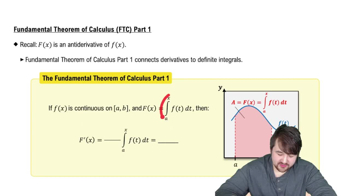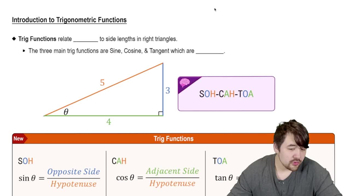Use Theorem 3.10 to evaluate the following limits.
lim x🠂0 sin ax / sin bx, where a and b are constants with b ≠ 0.
 Verified step by step guidance
Verified step by step guidance Verified video answer for a similar problem:
Verified video answer for a similar problem:



 5:21m
5:21mMaster Finding Limits by Direct Substitution with a bite sized video explanation from Patrick
Start learning